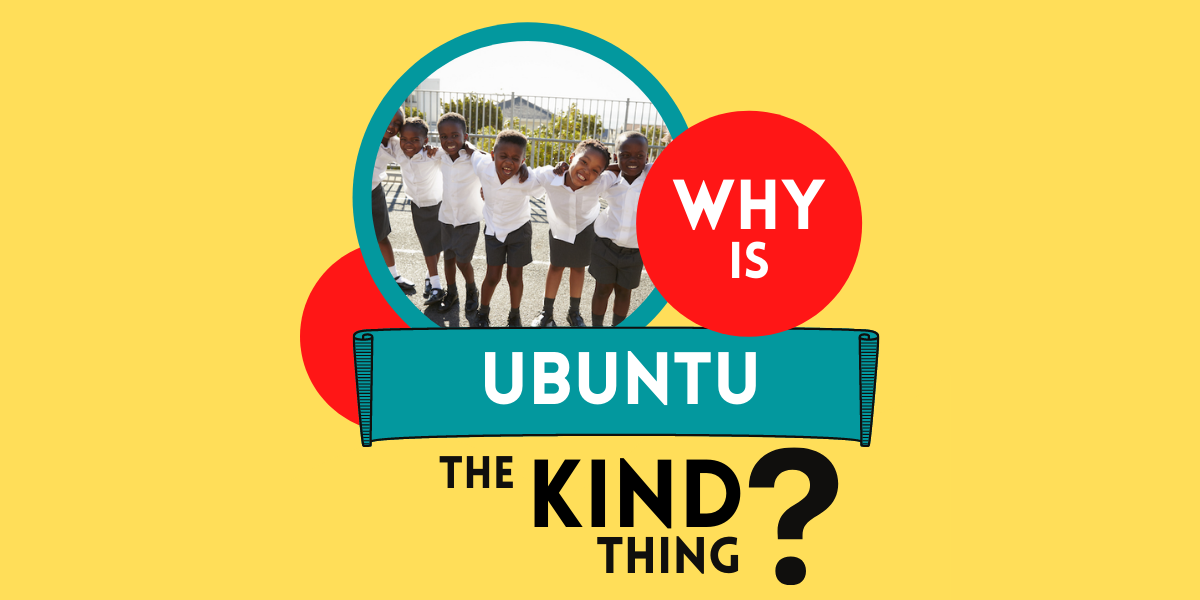Imagine you are with a group of your friends, and you are about to play a game/run a race. The prize at the end of the race is a basket of all your favourite candy and the rule is the first one to get to the basket gets to keep all the candy. What do you do? Do you strategize how to beat your friends to the basket? Do you try to get a head start over your friends to help make sure you win? Do you make it to the basket first and do a victory dance, teasing your friends for not getting any candy? Or do you take your friends’ hands and run as one group to the basket and share the candies equally amongst yourself?
Did that last option sound crazy to you, like that would never happen? In Western cultures, especially North American cultures, where individual success seems to be valued more than group success that last option may not seem like an obvious choice. However, in southern African cultures that is the natural choice!
In southern African countries they have a cultural philosophy or view of life they call ubuntu. Ubuntu is a word from the Xhosa language that is most accurately translated as: “I am because we are.” Now what exactly does that mean? It means that they believe that their humanity-what makes them a human being-is only fulfilled through the humanity of others. This means that they consider the impacts of their decisions on others in their families and their communities before taking action. As a result, the good of the group, family or community is taken into consideration over what benefits one person. This philosophy encourages empathy, kindness, connection, a sense of belonging, and community building.
The scenario at the beginning of this blog is an actual situation that was observed by an anthropologist who was studying the habits and customs of a tribe in Africa. He was shocked when he saw all the children link hands and run as one to the basket of candy. Curious, he asked one of the children why they ran as a group when they could have run solo and had all the candy to themselves? The child answered: “How can I be happy when all my friends will be sad?” It was then that the anthropologist understood who the tribe was at their core. They valued a mindset that made everyone feel welcomed, accepted, loved, cared for, and like they mattered.
Now, ubuntu doesn’t mean that there are no conflicts or arguments. The practice of ubuntu means that everyone’s opinion is heard and a discussion or a healthy debate is encouraged to determine what actions to take that would benefit the group as a whole. This teaches empathy, sacrifice, and compromise which are all important skills to have for successful relationships that foster teamwork and community.
Imagine what school would be like if everyone in your classroom practiced ubuntu? How would that make you feel? What are some ways you see you could practice ubuntu in your family, in your classroom, in your school, in your community?








